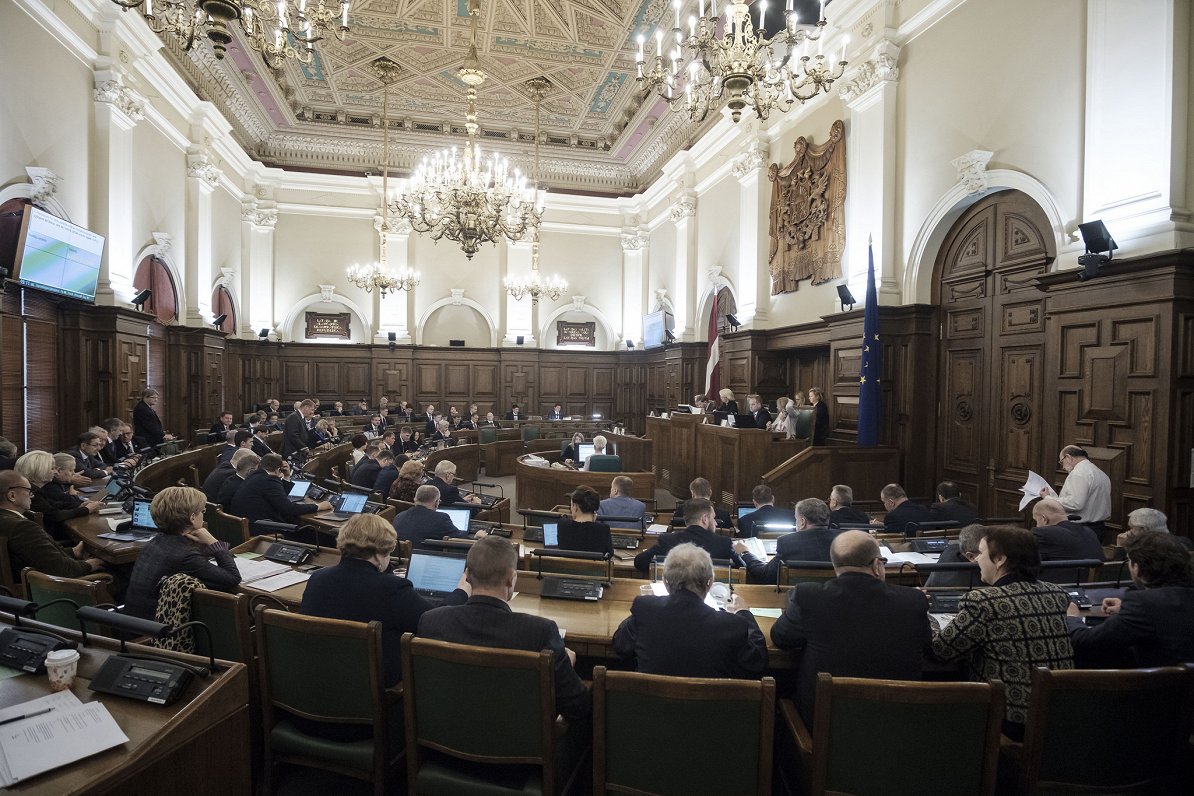Just 21,684 of the population belong to one political party or another, as opposed to 56,953 people in Estonia and 115,361 in Lithuania.
The largest parties in Latvia are Harmony (3,653 members), Unity (2,397) and the Union of Farmers (1,464). And, of the 77 Latvian parties, just ten have at least 500 members, making them eligible to participate in the parliamentary elections.
Politicians explain the low involvement in politics as a matter of tradition and of the low prestige the vocation enjoys among the populace.
"We've had such traditions for a long time in Latvia. It wasn't as if we had very big parties [before the war]. We had very low thresholds that did not pose obstacles for [small] groups of people to unite into political parties," said MP Sergejs Dolgovpolovs (Harmony).
While MP Augusts Brigmanis (Greens and Farmers Union) cites a pithy aphorism:
"Two Latvians make for ten parties. There was a saying like that, I think even back in Ulmanis' times [1934-1940]. It has been the case historically, and I think nothing can be done about it."
"Look, if someone enters a party, they are all but confined to only work in politics," says National Alliance head Raivis Dzintars. "It's clear that being a party member in Latvia is not the same like being a member of the Communist Party, but it does put a stamp of a sorts on a person."
Mažvydas Jastramskis, an associate professor at the Vilnius University says that Latvia is an exception across the EU, and that even Lithuania has much more to strive for, as, in Western Europe, 5 to 11% of people are party members.
He thinks that one of the main reasons why so few Latvians are politically involved, is that parties can be set up with just 200 members.
"If the party system operates, for two decades, with the principle that they need just 200 members.. they have no motivation to set up a large organization.
"To compare, in Lithuania the threshold was raised to 2,000 last year. Afterwards the smaller parties were forced to attract more members so that they could go on existing. It allowed to increase the total member count in Lithuania," he says.
According to Eurobarometer data, just 6% of Latvians trust the political parties, with only the Greeks being more mistrustful of their political figures. That is opposed to a slightly more optimistic 15% in Estonia, and 12% in Lithuania.
Politics expert Iveta Kažoka thinks that there's a vicious circle at work-people don't trust the political parties in Latvia because they have too few members, and they don't join them because they don't trust them.
However the parties themselves have learned getting by having few members.
"It's comparatively easy to be a small political party in Latvia, like a small regional party that joins a larger party for the election. So it doesn't have any motivation to increase its member count, just like the large party, which could simply make an offer to the smaller regional parties, or parties that are splitting off from their political competitors," says Kažoka.
While the state of legislation also has to do with why the parties are so small in Latvia. The minimum member threshold has been raised to 500 for the next Saeima election.
The new rules were ushered in largely by the initiative of former president Andris Bērziņš. While defending his project, he admits the new policy has not given tangible results as many new parties have appeared before the 2018 Saeima election.
He also says that, to his chagrin, the Saeima did not adopt another change he wanted to bring about, doubling the money parties receive for each electoral vote to €1.42, instead of the current €0.71.
"It's one of the basic solutions, I think. Funding is one of the greatest problems for parties to develop and work productively, to serve the people they represent and help defending them," says the former president.
Iveta Kažoka agrees. "Our political parties receive almost ten times less funding than those in our neighboring countries. I think that's part of the reason why even the parties that would like to have more members cannot achieve this in Latvia. It was not solved in any way by the 500 member requirement to run in Saeima elections," she says.





























